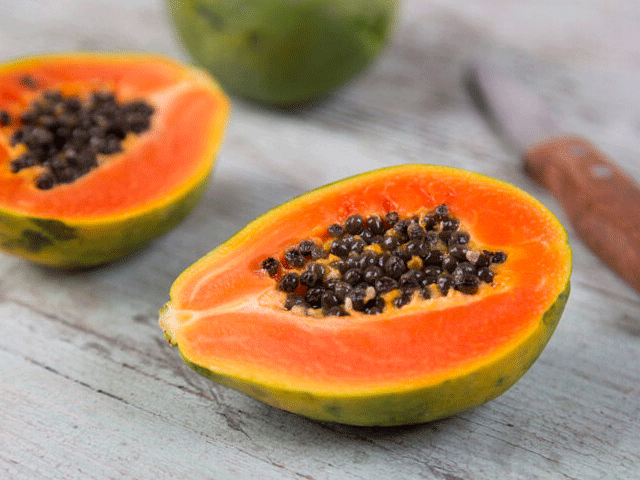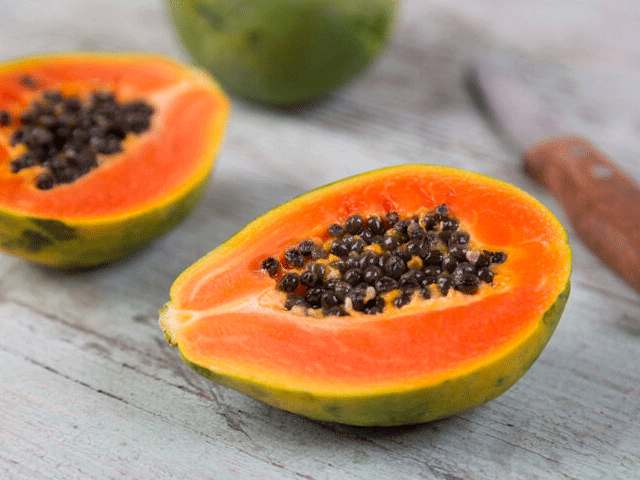
Eating papaya can prevent many diseases. Photo: File
Karachi: Papaya is a wonderful fruit due to its various properties but little has been written and studied about it. The medicinal properties of papaya are more than any expensive medicine.
This fruit is rich in vitamins A, B, C, E, calcium, fiber, magnesium, potassium and many types of antioxidants. Lutein, creatonoids and zeaxanthin present in it have been found to be very beneficial for health.
Natural constipation remedy
Papaya strengthens the entire digestive system. It is an effective medicine in curing many stomach and gastrointestinal diseases. If papaya is eaten on an empty stomach in the morning, due to its fiber, it relieves constipation and also relieves indigestion and acidity.
Effective in weight loss
Eating papaya in the morning helps in weight loss. Due to fiber, it gives a feeling of fullness for a long time. Thus, frequent eating reduces appetite and helps reduce obesity.
A powerhouse of security systems
In the presence of vitamin C and antioxidants, papaya very effectively boosts the immune system, which is also the body’s natural defense system. It then helps prevent diseases and infections. Eating papaya early in the morning also removes excess toxins from the body. For this reason, it is also an excellent detoxifier.
Papaya: Friend of the heart
Papaya lowers cholesterol, prevents diabetes and strengthens the heart. Apart from this, several ingredients help in controlling blood pressure.
Guaranteed beautiful skin
Eating papaya every morning improves skin glow. This is due to vitamin C and antioxidants that also repair skin cells. Papaya prevents the formation of free radicals and keeps the skin clear.
(function(d, s, id){
var js, fjs = d.getElementsByTagName(s)[0];
if (d.getElementById(id)) {return;}
js = d.createElement(s); js.id = id;
js.src = “//connect.facebook.net/en_US/sdk.js#xfbml=1&version=v2.3&appId=770767426360150”;
fjs.parentNode.insertBefore(js, fjs);
}(document, ‘script’, ‘facebook-jssdk’));
(function(d, s, id) {
var js, fjs = d.getElementsByTagName(s)[0];
if (d.getElementById(id)) return;
js = d.createElement(s); js.id = id;
js.src = “//connect.facebook.net/en_GB/sdk.js#xfbml=1&version=v2.7”;
fjs.parentNode.insertBefore(js, fjs);
}(document, ‘script’, ‘facebook-jssdk’));



